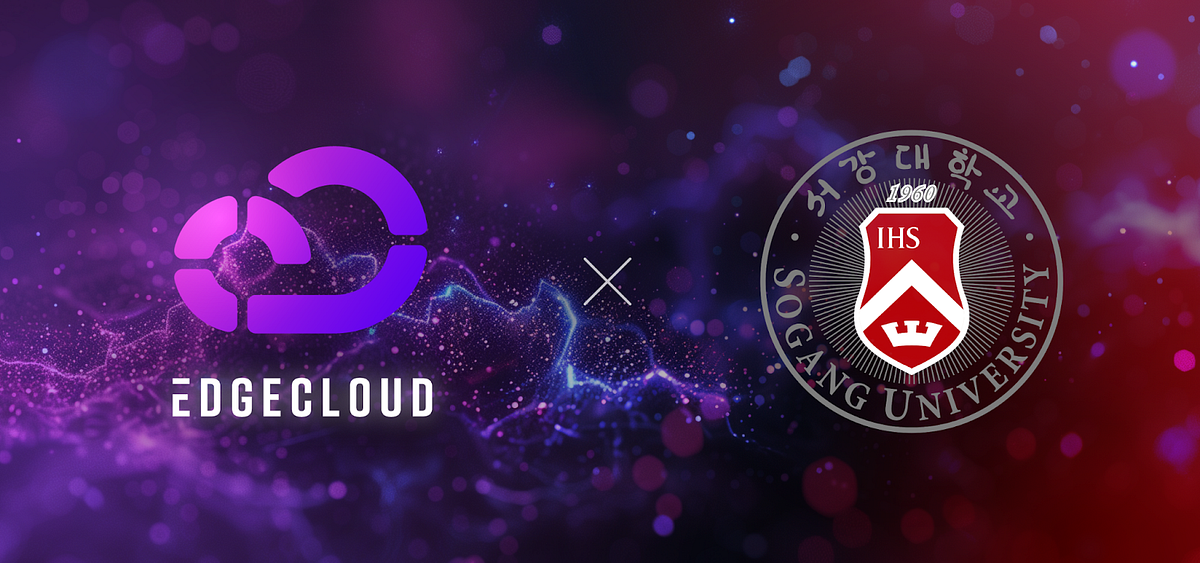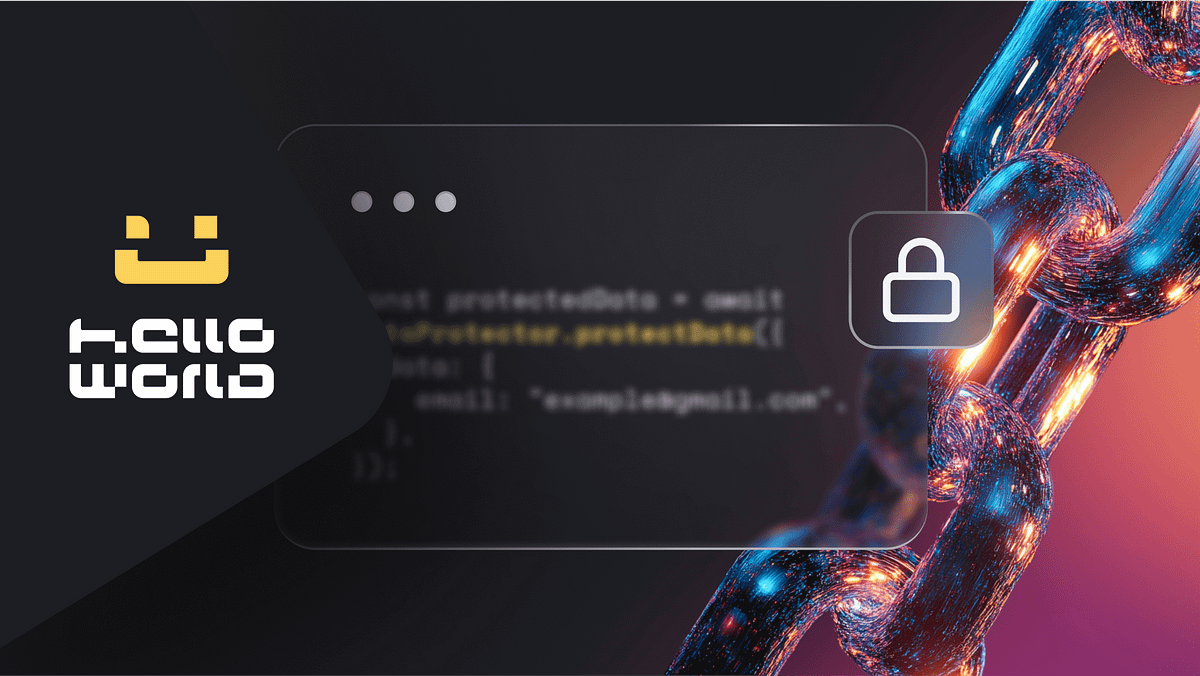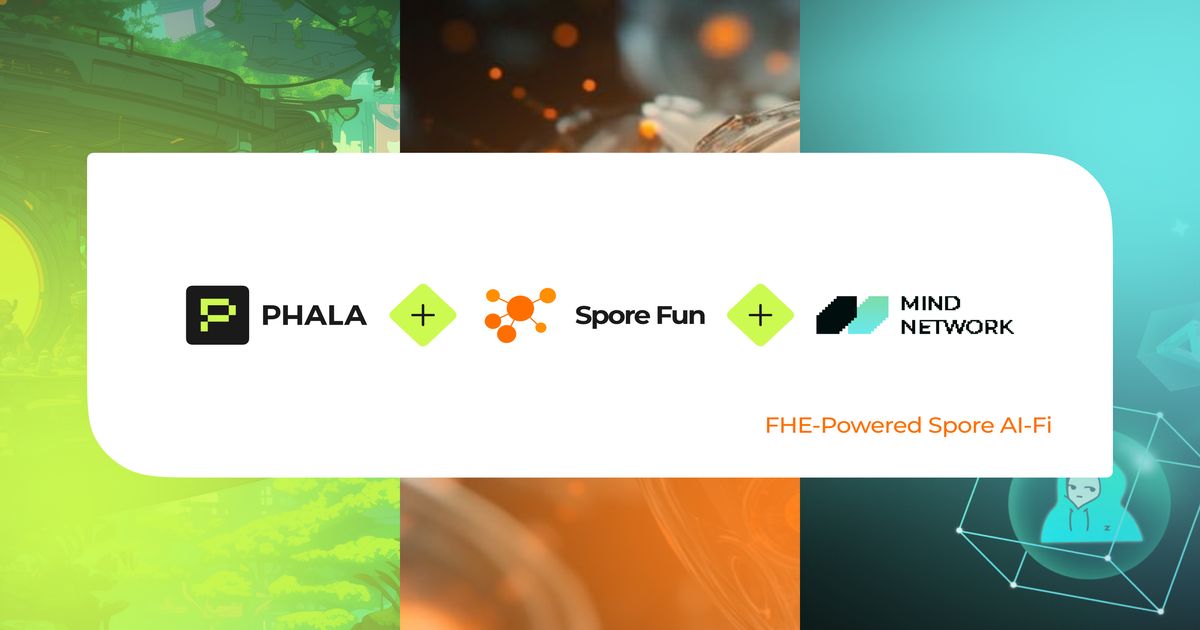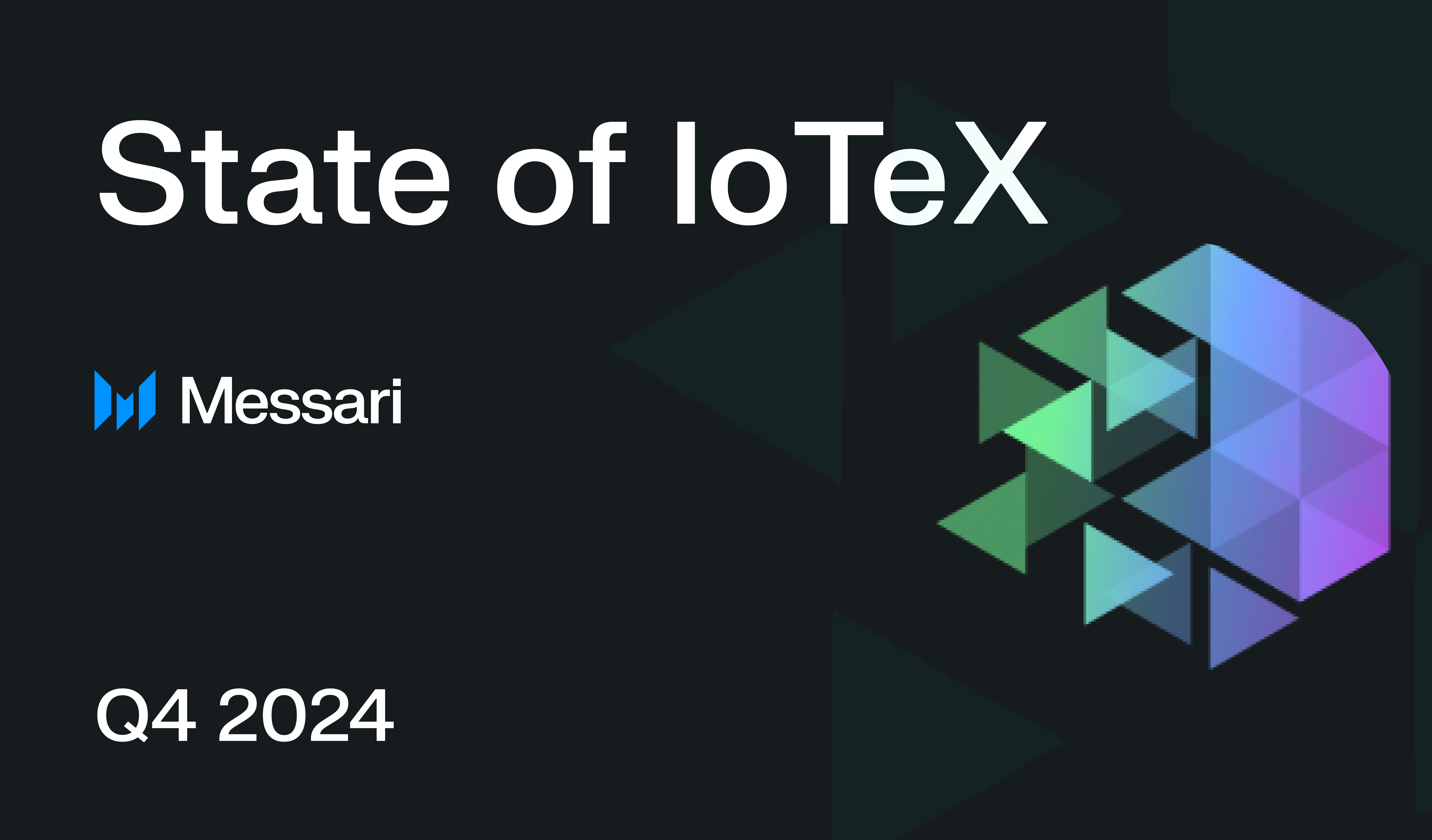Latest DePIN AI News
View AI Projects
3 months ago
Phoenix Partners with Origin Quantum to Democratize Quantum Computing
Phoenix has announced a strategic partnership with Origin Quantum, a leading quantum computing firm in China, to integrate its 72-qubit superconducting quantum chip into a decentralized AI and compute network. This collaboration aims to democratize access to quantum computing, making it more accessible to a broader audience. By leveraging Origin Quantum's advanced technology, Phoenix plans to create virtualized nodes that will deliver quantum computing capabilities in a simplified API format and through a quantum compute terminal, significantly reducing costs and complexity associated with deployment and development.
The foundation of this partnership lies in Origin Quantum's latest superconducting quantum computer, known as "Origin Wukong," which boasts 72 working qubits and 126 coupler qubits. This technology is already operational and has been applied in various fields, including biosciences, material engineering, and quantum machine learning. Notably, the latest advancements in quantum AI have seen implementations of deep neural networks on Origin's quantum computers, marking a significant step forward in the integration of AI and quantum technologies.
To further enhance accessibility, Phoenix is developing QuantumVM, a web-based quantum computing platform that will allow users to run quantum applications without the need for coding expertise. This initiative is expected to launch in early Q2 2025, providing researchers and developers with the tools to create and execute quantum functions easily. Tiger Li, Ecosystem Head of Phoenix, emphasized the importance of this partnership, stating that it represents a novel approach to computing and aims to combine cutting-edge technology with practical applications in both AI and quantum fields.

3 months ago
Sogang University Joins EdgeCloud Network to Advance AI Research
EdgeCloud has recently welcomed Sogang University’s Language & Data Intelligence Laboratory, led by Professor Buru Chang, as its latest customer. This addition expands EdgeCloud's network to twenty clients across various sectors, including academia, enterprise, esports, and traditional sports. Sogang University, recognized as one of South Korea's premier AI research institutions, joins an esteemed group of academic partners such as Seoul National University, KAIST, Korea University, and Yonsei University. These institutions are leveraging Theta EdgeCloud's hybrid cloud-edge GPU computing platform to tackle challenges in AI training and inference.
Professor Buru Chang, an Assistant Professor in the Department of Artificial Intelligence at Sogang University, leads the Language & Data Intelligence Laboratory, which specializes in natural language processing (NLP), multimodal machine learning, and data mining. Dr. Chang holds a Ph.D. in Computer Science from Korea University and has previously worked as a machine learning research scientist at Hyperconnect. Under his guidance, the lab has gained significant recognition, contributing to leading AI conferences and focusing on innovative areas such as dialogue generation and multimodal AI applications. Professor Chang expressed enthusiasm about using the EdgeCloud platform, noting its ease of use and scalability, which will enable the lab to explore new frontiers in AI research.
With access to Theta EdgeCloud, the Language & Data Intelligence Laboratory aims to enhance its research capabilities in several key areas. These include advancing models for open-domain dialogue and semantic diversity in NLP, developing real-time AI solutions for media processing, and improving the efficiency of AI workflows through Theta’s hybrid GPU infrastructure. The collaboration signifies a promising step forward in AI research, as the lab looks to harness scalable and cost-effective computing power to drive innovation and address complex challenges in the field.

3 months ago
Democratizing Quantum Computing: The Phoenix and Origin Quantum Partnership
A groundbreaking collaboration is underway between Phoenix, a leader in decentralized artificial intelligence, and Origin Quantum, a pioneer in quantum computing. This partnership aims to transform quantum computing from a complex and esoteric field into a practical tool that is accessible to everyday technologists. By integrating Origin Quantum's 72-qubit superconducting chip into Phoenix's DePIN network, the collaboration seeks to unlock powerful computational capabilities, making advanced quantum applications as easy to use as mobile apps. This integration promises to simplify the complexities of quantum systems, allowing users to harness their potential without needing specialized knowledge.
At the heart of this initiative is Origin Quantum's "Wukong" quantum computer, which boasts 198 qubits and is designed to tackle real-world challenges across various fields, including biosciences, material engineering, and artificial intelligence. The technology is already making waves in industries, providing live solutions that enhance processes from quantum biosciences to smart manufacturing optimizations. Complementing this is the upcoming launch of QuantumVM, an intuitive platform set to debut in early Q2 2025. QuantumVM will empower users to execute quantum computations through a user-friendly web interface, significantly reducing technical barriers and costs associated with quantum technology.
The implications of this partnership extend far beyond mere accessibility. As quantum computing continues to evolve, it is projected to revolutionize industries such as healthcare, finance, and logistics by optimizing complex systems and processes. Moreover, the democratization of quantum technology is crucial for fostering innovation, enabling smaller companies and independent developers to contribute to advancements in technology. This collaboration between Phoenix and Origin Quantum is not just about making quantum computing accessible; it is about reshaping the digital landscape and paving the way for a future where the impossible becomes routine.

3 months ago
iExec Launches Hello World Tutorial for Building Privacy-First dApps
Building decentralized applications (dApps) can often feel overwhelming, but iExec's Hello World tutorial simplifies the process for developers at all levels. This hands-on guide focuses on creating privacy-first blockchain applications, emphasizing the importance of data protection, management, and sharing. By utilizing tools like the DataProtector SDK and iExec Apps (iApps), developers can learn to build applications that prioritize user control and data security in just 30 minutes.
The iExec platform is designed for developers who want to ensure privacy and security in their dApps. With features like the DataProtector SDK, developers can encrypt sensitive data throughout its lifecycle, while iExec Apps utilize Trusted Execution Environments (TEEs) to process data securely. This combination of blockchain technology and Confidential Computing allows for secure handling of sensitive information, making it ideal for applications in sectors such as healthcare and finance. Additionally, iExec provides monetization opportunities, enabling developers to tokenize and monetize their data while maintaining security for both builders and end-users.
iExec Hello World serves as a stepping stone for developers looking to create impactful decentralized applications. After completing the tutorial, participants can claim a BUILD voucher to access advanced tools and resources, join the iExec developer community for collaboration, and explore real-world use cases. The structured approach provided by iExec ensures that building privacy-first dApps is not only achievable but also rewarding, empowering developers to protect sensitive data and create innovative solutions in the blockchain space.

4 months ago
Spore.fun Introduces FHE-Powered Blind Voting to Combat Voting Snipers in AI-FI Governance
Spore.fun is leading the charge in AI-FI (Autonomous AI-Native DeFi) innovation by introducing Fully Homomorphic Encryption (FHE) to enhance secure governance. In collaboration with Mind Network, a pioneer in FHE technology, and integrating with Phala Network’s Trusted Execution Environment (TEE), Spore.fun aims to redefine how AI agents manage decentralized systems. The primary challenge they face is the issue of voting snipers, who exploit the transparency of on-chain governance to manipulate outcomes. These participants stake just before votes, influence community behavior, and then unstake immediately after securing favorable results, leading to market distortions and undermining trust within the community.
To address the problem of voting snipers, Spore.fun is implementing FHE-powered blind voting. This innovative mechanism conceals voter identities and preferences while maintaining transparency and security in the final results. Votes are encrypted before submission, ensuring that no one, including the Spore.fun network or validators, can access the content of the votes. The aggregation of these encrypted votes is performed using FHE, allowing for computations without revealing individual inputs. Additionally, Phala’s TEE plays a crucial role in securely decrypting the final results for publication, ensuring that while individual votes remain private, the aggregate outcome is verifiable and trustworthy.
The integration of FHE into Spore’s governance model unlocks significant community value by enhancing fairness, ensuring privacy while maintaining transparency, and enabling decentralized evolution. This dual-layer security approach, combining FHE and TEE, empowers Spore agents to operate autonomously and securely, driving the next wave of decentralized AI governance. By adopting FHE blind voting, Spore.fun is not only empowering the community with secure, trustless voting but also establishing a framework for fair, privacy-first AI ecosystems. As they continue to innovate, Spore.fun is shaping the future of decentralized AI, ensuring that AI agents can grow and thrive in a secure environment.

4 months ago
Ceramic Joins Textile Family: A New Era for Decentralized Data Solutions
In a significant development in the decentralized data space, 3Box Labs has announced its merger with Textile, marking a new chapter for Ceramic, which is now part of the Textile family. This merger aligns Ceramic with other innovative decentralized data solutions such as Tableland DB and Basin Network. As the crypto industry evolves, the applications being developed with decentralized and composable data are also changing, particularly with the rise of AI agents that are becoming central to data production and consumption. These agents require decentralized storage, open composability, and real-time streaming capabilities, all of which are core to the Ceramic community's offerings.
Looking ahead, Ceramic aims to establish itself as a foundational element of a broader open intelligence network. This network will facilitate autonomous transactions between AI agents, allowing them to buy and sell intelligence on demand. Agents will be able to enhance their knowledge and capabilities by integrating with others, delegating specialized tasks, or monetizing their expertise—all on-chain. Ceramic's role will be crucial in enabling communication and knowledge sharing between agents, complementing the storage technologies developed by Textile.
Despite these changes, Ceramic will maintain its current operations without disruption to its development or customer services. The merger not only strengthens Ceramic's position in the decentralized data landscape but also connects it to a larger network of agents eager to utilize and pay for datasets. This strategic move is expected to foster innovation and collaboration within the decentralized ecosystem, paving the way for exciting advancements in the future.

4 months ago
Empowering AI Agents Through DIMO's Decentralized Infrastructure
In the evolving landscape of artificial intelligence, AI agents are poised to play a pivotal role in everyday decision-making and transactions. The vision presented in USV's "Four Futures" highlights a future where these agents autonomously interact and transact, managing everything from service payments to physical asset oversight. However, the current challenge lies in the distinction between device connectivity and interoperability. Merely connecting a device to an application does not empower AI agents to function across various services. To harness the full potential of AI, a shared protocol that facilitates seamless communication among devices from different manufacturers is essential, and this is where DIMO's decentralized infrastructure comes into play.
DIMO's framework allows AI agents to access device data securely and verifiably, enabling them to make informed decisions on behalf of users. This capability extends to real-world applications, such as optimizing electric vehicle (EV) charging and automating parking fee management. For instance, an AI agent could analyze real-time electricity pricing and the vehicle's battery health to determine the optimal charging times, ensuring cost savings while prolonging battery life. Similarly, by utilizing location data, the agent can automatically manage parking fees, interfacing with city and private APIs to prevent unnecessary charges without user intervention. These examples illustrate how DIMO's protocol facilitates intelligent interactions within a networked device ecosystem.
The importance of decentralized infrastructure cannot be overstated, as it not only enhances network resilience but also expands the potential for AI agents to operate across a broader range of devices. For AI to transition from software-based decision-making to tangible real-world control, it must rely on secured oracles for trustworthy data, device interoperability for extensive control, and machine identity frameworks for secure transactions. While many AI initiatives expect this infrastructure to develop organically, DIMO and its community are actively constructing it now, fostering an open and decentralized environment where AI agents can thrive and exert real-world influence.

4 months ago
IoTeX 2.0 Launch Drives Record Growth and AI Integration
In the fourth quarter of 2024, IoTeX experienced remarkable growth following the launch of its 2.0 version, with average daily transactions skyrocketing by 1,267% quarter-over-quarter (QoQ) to reach 384,300. This surge was complemented by peak throughput hitting 62 transactions per second (tps). The total fees accrued on the IoTeX Network also saw a significant increase of 205% QoQ, amounting to $448,500, driven largely by a staggering 1,600% rise in gas fees and a 690% increase in decentralized exchange (DEX) fees, primarily from activity on Mimo. The introduction of the ioID protocol, which provides a universal onchain identity solution for smart devices, has played a crucial role in this growth by enabling verifiable device identities and enhancing user engagement in the decentralized physical infrastructure networks (DePIN) ecosystem.
IoTeX has also made strides in integrating artificial intelligence (AI) into its platform with the launch of BinoAI, an autonomous agent built on the ELIZA framework. This development is part of a strategic partnership with Eliza Labs, aimed at creating AI agents that can perceive and interact with physical environments using DePIN data. Additionally, the release of Quicksilver, a middle-layer framework, facilitates the connection between DePIN data and AI agents, allowing for real-time data processing and adaptive responses. These innovations position IoTeX as a leader in the convergence of AI and DePIN, potentially transforming how decentralized applications interact with real-world data.
The IoTeX ecosystem has expanded significantly, now hosting 251 projects, including 66 focused on DePIN. Partnerships with various entities, such as Nubila for environmental data and Streamr for decentralized data streaming, have further enriched the ecosystem. The recent upgrades to IoTeX Core, particularly the Cancun EVM compatibility, enhance the network's functionality and interoperability with Ethereum. As IoTeX continues to innovate and expand its offerings, it is poised to play a pivotal role in the future of decentralized infrastructure and AI-driven applications.

4 months ago
DePIN Union Partners with UpRock to Democratize AI Insights
DePIN Union has announced an exciting partnership with UpRock, marking a significant advancement for both platforms. This collaboration aims to create real-time, unbiased insights that are accessible to everyone, thereby redefining how users interact with information in the digital realm. UpRock's mission is to bridge the gap between centralized artificial intelligence (AI) and decentralized infrastructure, establishing a transparent and impartial data ecosystem that benefits all users.
The partnership is set to pave the way for new industrial standards in the realm of data accessibility. DePIN, which operates on a blockchain-powered decentralized infrastructure, made the announcement via its official X account. UpRock is recognized for its innovative approach to AI-focused web crawling and data synthesis, which eliminates biases often found in traditional AI models. By leveraging advanced web crawling techniques, UpRock retrieves meaningful real-time insights while ensuring a streamlined access to data through its decentralized framework.
Together, DePIN Union and UpRock are poised to redefine AI-powered intelligence. By integrating DePIN's decentralized infrastructure with UpRock's AI capabilities, the partnership aims to create a more inclusive and user-controlled digital landscape. This collaboration promises to deliver secure, transparent, and accessible data while mitigating the risks associated with centralized control. As both platforms evolve, they stand as beacons for a future characterized by decentralized, impartial, and user-centric insights, ultimately enhancing the knowledge-based environment for all users.

4 months ago
Theta EdgeCloud Adds DeepSeek LLM
Theta EdgeCloud has integrated DeepSeek-R1, a cutting-edge large language model developed by Chinese AI startup DeepSeek. DeepSeek-R1 delivers performance comparable to models like OpenAI’s ChatGPT, Mistral’s Mixtral, and Meta’s LLaMA while using significantly fewer computational resources. By supporting DeepSeek-R1, Theta EdgeCloud, a decentralized GPU cloud infrastructure, enhances AI efficiency and accessibility. DeepSeek’s innovations, such as multi-head-latent-attention (MLA) and FP8 precision quantization, allow advanced LLMs to run on consumer GPUs, making high-performance AI more accessible to developers, researchers, and small-scale enterprises without relying on expensive centralized cloud infrastructure.
Theta EdgeCloud’s decentralized architecture provides scalability by dynamically allocating GPU nodes based on demand, eliminating the need for costly physical infrastructure expansion. This approach also reduces costs by leveraging underutilized computational power, enabling users to pay only for the resources they consume. In addition to being cost-efficient, Theta EdgeCloud promotes sustainability by distributing AI processing across multiple locations instead of relying on energy-intensive data centers.
With this integration, Theta Labs continues to push the boundaries of decentralized AI infrastructure, offering a more cost-effective, scalable, and environmentally friendly alternative for AI model training and inference.
Signup for latest DePIN news and updates